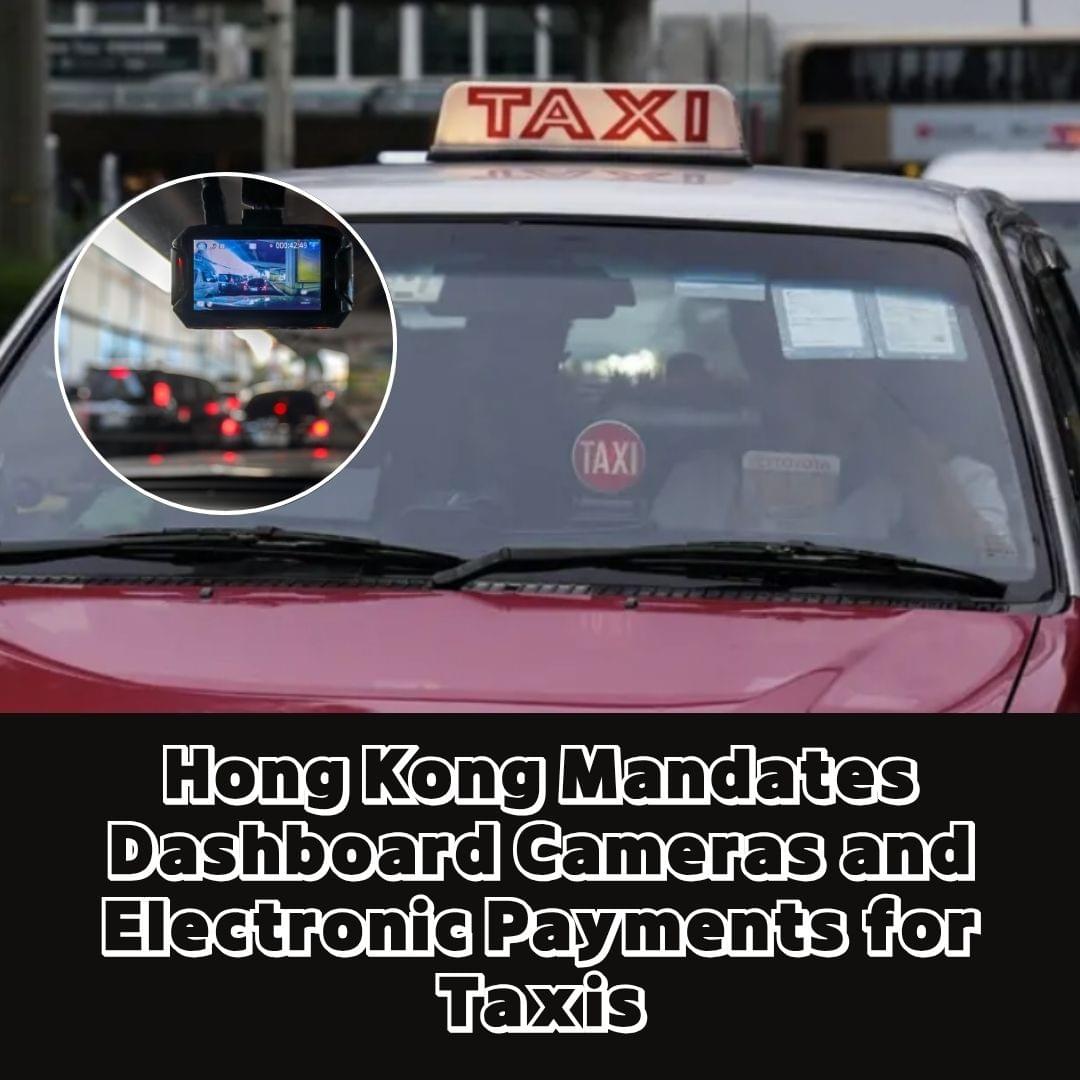
The Hong Kong government will gazette amendments to the Road Traffic (Construction and Maintenance of Vehicles) (Amendment) Regulation 2025 and the Road Traffic (Public Service Vehicles) (Amendment) Regulation 2025 today, mandating all taxis to install journey recording systems and accept electronic payments. The amendments will be submitted to the Legislative Council for negative vetting on Wednesday, July 23, 2025.
Mandatory Electronic Payments by April 2026
Starting April 1, 2026, all taxi drivers must accept at least two forms of electronic payment, one of which must be QR code-based. To support the transition, the Transport Department will collaborate with electronic payment platforms to organize workshops and briefings, helping drivers learn to process cashless transactions.
Journey Recording Systems by 2027
By the end of 2026, all taxis must be equipped with journey recording systems, with full implementation expected by 2027. These systems will include audio and video recording inside the cabin, clear footage of the vehicle’s front and rear views, and GPS data collection for location tracking. The devices will be sealed, tamper-proof, and subject to annual inspections. Recorded data will be encrypted and accessible only to authorized personnel, such as law enforcement or the Transport Department, for investigating traffic-related violations.
The Transport Department will begin certifying equipment suppliers in the fourth quarter of 2025, enabling the industry to start installations in 2026. All recorded data will be linked to a central government system for monitoring.
Industry Support and Expected Benefits
The Transport and Logistics Bureau stated that the recording systems aim to deter driver misconduct, enhance road safety, and protect both drivers and passengers during disputes. To prepare the industry, the Transport Department will communicate the new requirements through its website, the Taxi Newsletter, promotional leaflets, and regular meetings with taxi operators starting in the second half of 2025.
Chow Kwok-keung, Chairman of the Smart Mobility Association, a taxi trade group, welcomed the measures, noting that similar systems in Macau have reduced taxi-related complaints by at least 50%. He believes the recording systems will discourage behaviors like passenger refusal and unreasonable demands, as both drivers and passengers will know their actions are recorded. However, Chow estimated that installing and maintaining these systems could cost around HK$4,000 per taxi, with the industry exploring more affordable suppliers to manage expenses.
The new regulations are expected to significantly improve service quality and accountability in Hong Kong’s taxi industry.